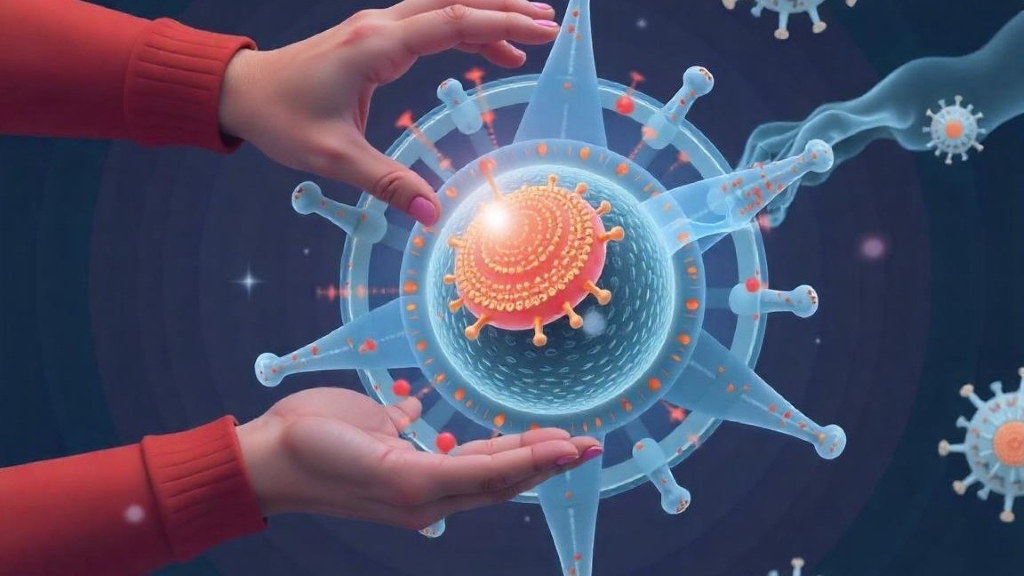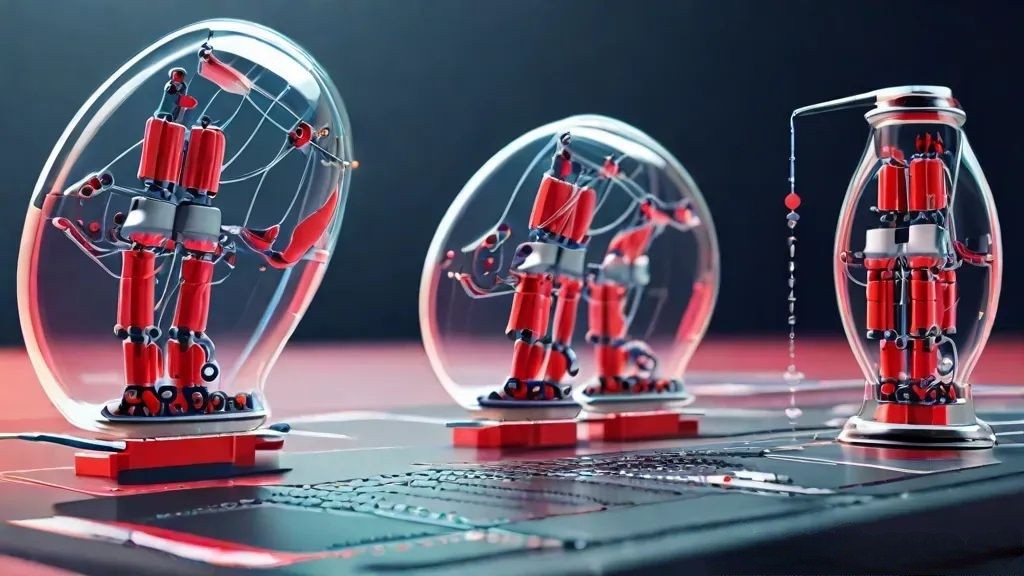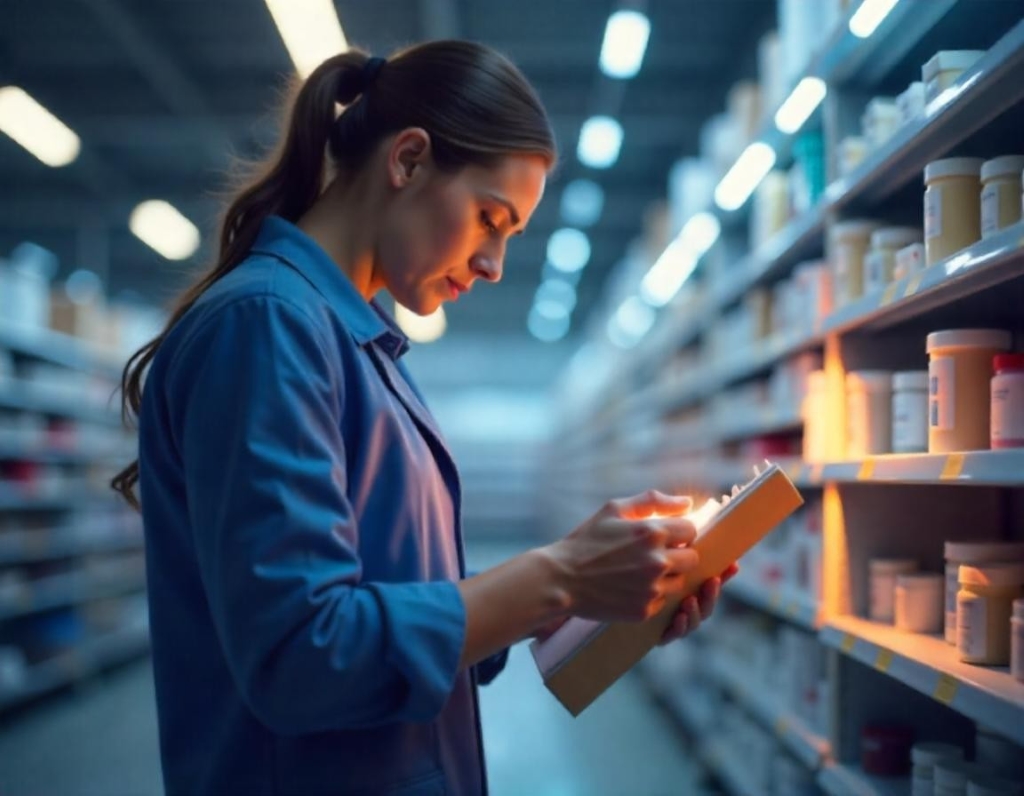Nanotechnology in Product Delivery: Revolutionizing Personalized Sampling with Nanobots

The integration of nanotechnology is unlocking groundbreaking opportunities in marketing and product delivery. Nanobots—microscopic, programmable robots—are emerging as a revolutionary tool for delivering personalized product samples directly to consumers’ homes. This innovative approach not only enhances consumer engagement but also addresses inefficiencies in traditional marketing campaigns.
Nanobots—microscopic, programmable robots—are emerging as the next frontier for delivering personalized product samples directly to consumers’ homes. This innovative approach not only elevates consumer engagement but also addresses inefficiencies in traditional marketing campaigns.
The Role of Nanotechnology in Marketing

Nanotechnology, primarily associated with medicine, energy, and manufacturing, is now making waves in the consumer goods industry. Its precision and adaptability provide unparalleled advantages in creating a more targeted, seamless, and personalized customer experience.
The concept of using nanobots for delivering product samples is a natural evolution of personalization trends. Modern consumers increasingly demand bespoke experiences tailored to their preferences. According to a study by Accenture, 91% of consumers are more likely to shop with brands that provide relevant offers and recommendations. Nanobots could serve as the ultimate enabler of such relevance by integrating marketing data with advanced delivery mechanisms.
How Nanobots Enable Personalized Delivery
Nanobots can operate at a microscopic level to transport products such as cosmetics, food samples, or beverages directly to consumers. This is achieved through several key capabilities:
1. Data-Driven Precision
Nanobots can be programmed to match consumer profiles based on data collected from marketing campaigns. For example, if a beauty brand promotes a new moisturizer, nanobots could deliver the sample to individuals identified as potential buyers based on their skin type, location, or purchasing behavior.
2. Enhanced Efficiency
Traditional sampling relies on mass distribution at retail stores or events, often resulting in waste and missed targets. Nanobots, in contrast, can deliver the exact amount of product required, directly to the consumer, minimizing waste and improving cost efficiency.
3. Unparalleled Versatility
Nanobots can handle various products, from liquid samples like beverages to powdered cosmetics or even small quantities of ready-to-eat food. Their versatility makes them a game-changer for industries with diverse product offerings.
Real-World Applications of Nanobot Sampling

Several industries stand to benefit significantly from nanobot-enabled delivery systems:
1. Cosmetics and Personal Care
Beauty brands have long used product sampling to attract customers. Nanobots could deliver tailored samples based on skin conditions detected via smart devices, like wearable health trackers. For example, a brand like L'Oréal could integrate nanobot delivery with their Skin Genius app, which analyzes skin health.
2. Food and Beverages
The food industry is seeing increasing demand for healthier, functional foods. Nanobots could deliver personalized samples of nutrient-enriched drinks or snacks to health-conscious consumers based on dietary preferences recorded during marketing surveys.
3. Healthcare and Pharmaceuticals
Nanobots could also revolutionize the sampling of over-the-counter healthcare products, such as vitamins or pain relief sprays. Personalized deliveries could cater to specific health concerns, driving consumer trust and brand loyalty.
Supporting Data and Emerging Trends
Global Nanotechnology Market Growth: The global nanotechnology market was valued at $1.76 billion in 2020 and is projected to grow at a compound annual growth rate (CAGR) of 36.4% from 2021 to 2030, according to Allied Market Research. This growth signals widespread adoption across industries, including consumer goods.
Rise of Personalized Marketing: A report by Epsilon found that 80% of consumers are more likely to purchase from a brand offering personalized experiences. Nanobot delivery perfectly aligns with this trend, making it a timely innovation.
Sustainability Focus: Nanobots minimize the environmental impact of product sampling by reducing packaging waste and optimizing resource usage, appealing to eco-conscious consumers.
Overcoming Challenges
While the potential of nanobots is immense, certain challenges must be addressed to ensure successful implementation:
1. Regulatory and Ethical Considerations
The deployment of nanobots for consumer use raises questions about safety, privacy, and data security.Robust regulatory frameworks and transparent communication with consumers will be crucial.
2. Cost of Technology
High initial costs could deter small and medium-sized brands. However, as technology matures and scales, costs are expected to decline.
3. Consumer Adoption
Educating consumers about nanobot delivery will be essential to build trust. Early adopters in the beauty or tech-savvy food industries could pave the way for broader acceptance.
Future Prospects
The future of nanobot delivery in marketing is bright. Imagine a world where after watching an ad on Instagram, a consumer receives a personalized sample of the product within hours, delivered seamlessly by a nanobot. This level of immediacy and personalization could redefine customer loyalty.
Innovators are already exploring similar concepts. For example, Amazon's Prime Air drones focus on delivering packages quickly, but integrating nanobot precision for product sampling would be the logical next step. Similarly, startups specializing in nanotechnology are well-positioned to collaborate with consumer brands in creating these futuristic delivery systems.
Conclusion
Nanotechnology in product delivery represents a transformative opportunity for marketers. Nanobot-enabled sampling not only enhances personalization but also drives efficiency, sustainability, and innovation across industries. By addressing current challenges and embracing this cutting-edge technology, brands can position themselves as pioneers in an increasingly competitive landscape. As technology advances and consumer expectations evolve, nanobots may soon become the standard for personalized product delivery, setting a new benchmark in marketing excellence.
- What do a well-balanced diet and a well-balanced content strategy have in common?
- Stories are the future of digital marketing
- Organic Content Marketing – A powerful tool to reckon with
- Content is King, but distribution rules the land. Are you invested in it?
- Three Content Marketing Predictions For 2018
- 3 Ways Chatbots Are Revolutionizing Customer Experience In Content Marketing
- 3 ways to balance promotional content with useful information to win the content game
- Organic Content Marketing – A powerful tool to reckon with
- What do a well-balanced diet and a well-balanced content strategy have in common?
- Mirror on the wall who is the real thought leader among all
- Do you have your CEO’s vote for your thought leadership campaign yet
- Pretty pictures and messages not enought to creat a brand anymore
- 5 reasons why you need Thought Leadership
- 3 reasons why organisations should drive reputation management through thought leadership
- Create Result-oriented Content Now
- Tips to Keep the Content Strategy for the Technology Industry Audience
- 5 ways Corporate Blogging helps you stay ahead!